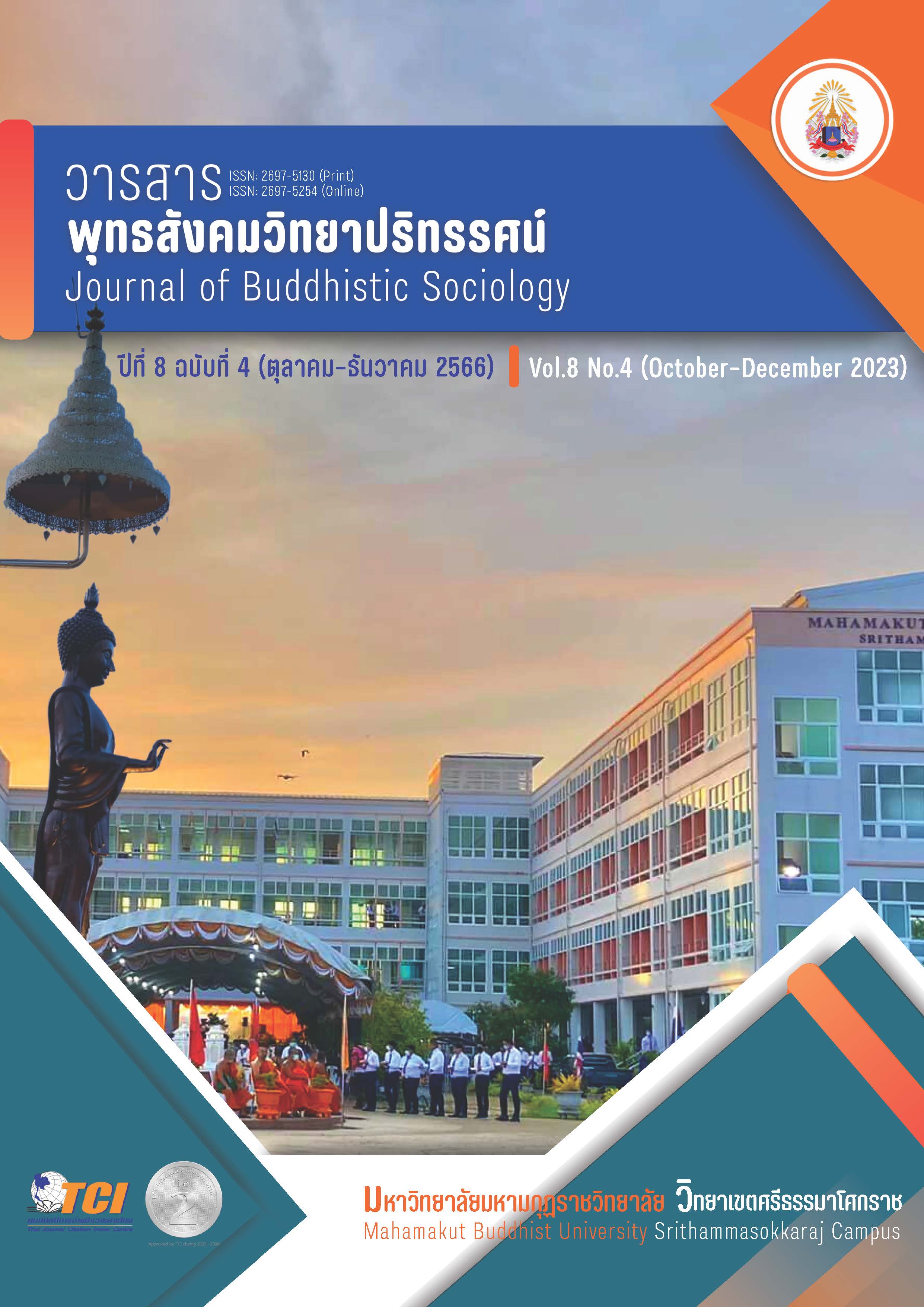THE LITERATURE REVIEW: THE RECIDIVISM AMONG PRISONERS CONVICTED OF SEXUAL AND VIOLENT CRIMES FOLLOWING MEASURES TO PREVENT RECIDIVISM OF SEXUAL AND VIOLENT CRIMES ACT (2022)
Main Article Content
Abstract
The recidivism of prisoners is also a challenging problem that requires agencies in the justice system to urgently find ways to solve the problem in order to rehabilitate the behavior of prisoners who return to re-offend. This article, therefore, aims to study the concept and theory of recidivism and sexual or violent offenses and analyze the causes of recidivism among prisoners convicted of sexual and violent crimes. Including offering guidelines for solving problems, which collect information from documents and electronic media. From the study, it was found that factors that still cause recidivism include personal, spiritual, social, mental, environmental, and legal factors. As for the approach to correcting recidivism, there should be a holistic solution in terms of physical, mental, social, and legal aspects to provide guidance to relevant agencies, especially the Department of Corrections, which is the main agency whose mission is to control and correct the behavior of prisoners. To return to being a good citizen and having good physical and mental health. Do not return to commit the same mistake again. Receive skill development in honest occupations and be able to lead a normal life outside of society, with society accepting it.
Article Details

This work is licensed under a Creative Commons Attribution-NonCommercial-NoDerivatives 4.0 International License.
References
กรมราชทัณฑ์. (2566). รายงานสถิติผู้ต้องราชทัณฑ์ทั่วประเทศ สำรวจ ณ วันที่ 1 ตุลาคม 2566. เรียกใช้เมื่อ 10 ตุลาคม 2566 จาก http://www.correct.go.th/rt103pdf/report_result.php?date=2023-10-01&report=.
กรมราชทัณฑ์. (2566). ห้าอันดับประเภทคดีที่มีอัตราการกระทำผิดซ้ำของผู้ต้องขังที่ได้รับการปล่อยตัว. เรียกใช้เมื่อ 16 ตุลาคม 2566 จาก http://www.correct.go.th/recstats/index.php/th/Home.
ไท วัฒนา. (2564). กระบวนการยุติธรรมทางเลือกในต่างประเทศ สู่โมเดลการแก้ไขปัญหากระบวนการยุติธรรมไทย. เรียกใช้เมื่อ 11 ตุลาคม 2566 จาก https://researchcafe.tsri.or.th/judicial-process/.
ไทยพีบีเอส. (2566). ก่อเหตุซ้ำ “คดีผิดทางเพศ” ท้าทาย กม. JSOC. เรียกใช้เมื่อ 10 ตุลาคม 2566 จาก https://www.thaipbs.or.th/news/content/327215.
ราชกิจจานุเบกษา. (2565). พระราชบัญญัติมาตรการป้องกันการกระทำความผิดซ้ำในความผิดเกี่ยวกับเพศหรือที่ใช้ความรุนแรง พ.ศ. 2565 เล่ม 139 ตอนที่ 66 ก.
สำนักงานกิจการยุติธรรม. (2566). เหตุผลและความจําเป็นในการเสนอพระราชบัญญัติ. เรียกใช้เมื่อ 10 ตุลาคม 2566 จาก https://www.oja.go.th/wp-content/uploads/2021/12/LegalSummarySVCP.pdf.
สุธาสินี ดอกชะเอม. (2552). ปัจจัยทางสังคมที่มีผลต่อการกระทำผิดซ้ำของผู้ต้องขังในเรือนจำจังหวัดสุพรรณบุรี. ใน วิทยานิพนธ์สังคมสงเคราะห์ศาสตรมหาบัณฑิต. มหาวิทยาลัยธรรมศาสตร์.
สุวรรณ ใจคล่องแคล่ว. (2546). สาเหตุการกระทำผิดซ้ำของผู้ต้องขังเรือนจำพิเศษธนบุรี. ใน วิทยานิพนธ์ศิลปศาสตรมหาบัณฑิต สาขาวิชาการบริหารงานยุติธรรม. มหาวิทยาลัยธรรมศาสตร์.
อภิวัฒน์ สุดสาว. (2561). การกำหนดโทษอาญาตามบทบัญญัติมาตรา 77 ของรัฐธรรมนูญแห่งราชอาณาจักรไทย. วารสารจุลนิติ, 15(2), 113-127.
อัณณพ ชูบํารุง. (2561). อาชญาวิทยาแนวพุทธ. กรุงเทพมหานคร: ชุมนุมสหกรณ์การเกษตรแห่งประเทศไทย.
อุนิษา เลิศโตมรสกุล และอัณณพ ชูบำรุง. (2561). อาชญากรรมและอาชญาวิทยา. กรุงเทพมหานคร: โรงพิมพ์แห่งจุฬาลงกรณ์มหาวิทยาลัย.
Maltz. (1984). Recidivism. New York: Maltz Publishers.


